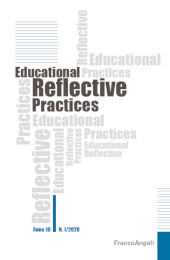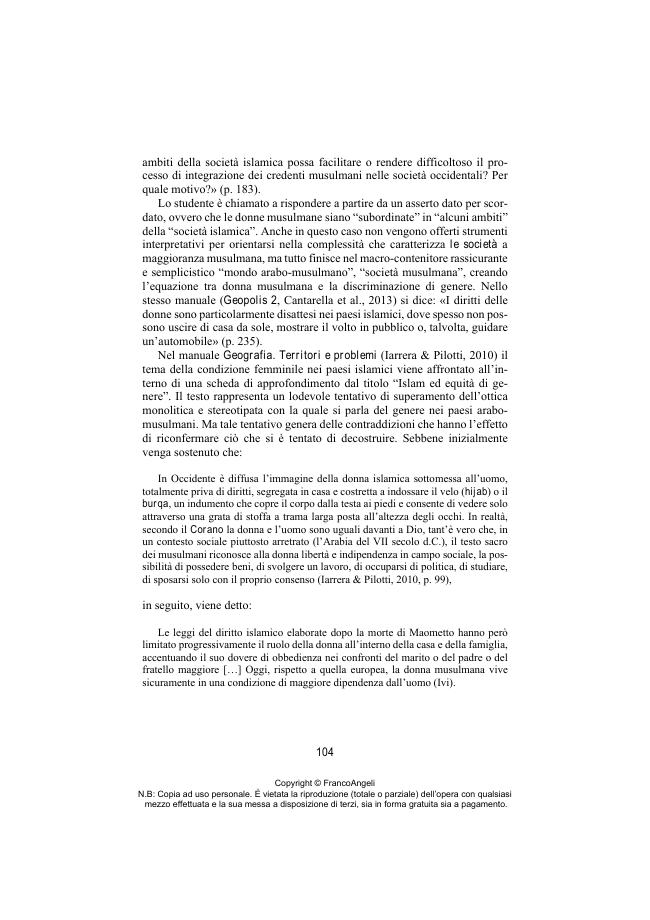I manuali scolastici danno accesso all'altro in classe? Un'analisi comparativa tra l'Italia e il Québec
92-116 p.
Faced with "sensitive" topics, teachers are usually reluctant to use textbooks (Hirsch, 2016), as they often and willingly point out that textbooks are clearly impossible to keep up to date. Our analyses of textbooks (Hirsch, 2018; Lucenti, 2018a) allow us to demonstrate how textbooks rarely adapt to social and political realities, with change faster than the reissue of texts. This contribution aims to propose a comparison between Italy and Québec on the representation of otherness in textbooks. Focusing in particular on "sensitive" issues related to religious symbols, we have identified the manuals of history and religion on the one hand (Ethis and Religious Culture - ECR - in Québec; Teaching of the Catholic Religion - IRC - in Italy), the skills and practices of teachers, on the other hand.
These are the factors from which to analyse the challenges posed today by school education, among which we can cite the cultural diversity of students and the inclusion (or not) of this diversity in school curricula and teaching aids, manuals first of all. The concept of otherness will be treated starting from the Arab-Muslim minority, as -the other- par excellence (Lucenti, 2018a), although present in a structural way in both societies considered. Our analysis will show that most of the time textbooks convey a crystallised and "anonymous" image (Hirsch & Mc Andrew, 2016; Lucenti, 2018b) of ethnocultural and religious minorities who do not share the values of contemporary Western societies. They therefore do not facilitate the creation of an intercultural and inclusive curriculum. [Publisher's text].
Ist Teil von
Educational reflective practices : 1, 2020-
Artikel aus derselben Ausgabe (einzeln erhältlich)
-
Informationen
ISSN: 2279-9605
THEMENBEREICHE



